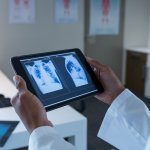
News • Algorithm uses image analytics
AI auto-scans lung X-rays for coronavirus
Coronavirus can be identified automatically from sick patients’ lung X-rays using artificial intelligence (AI) developed at Brunel University London.

Coronavirus can be identified automatically from sick patients’ lung X-rays using artificial intelligence (AI) developed at Brunel University London.

As the first country to be hit by COVID-19, China learned a number of early lessons into how to combat the highly-infectious disease. With radiology teams playing an important role and utilising CT chest scans as a diagnostic tool against coronavirus, Chinese practitioners have found themselves well-placed to offer a valuable insight on how to combat and contain COVID-19. In a special webcast –…
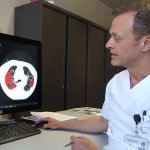
Hospitals and organizations worldwide joined forces with AI imaging company icometrix in a global initiative to leverage artificial intelligence (AI) in the fight against COVID-19. The multinational collaboration resulted in the development of an AI algorithm, icolung, which received CE-marking for clinical use in Europe. icolung is the first CE-marked AI solution for CT resulting from a…

Radiology experts from Norway and Germany highlighted the role of structured reporting in communicating clear results to the rest of the team, to improve patient and staff safety during the pandemic. They also related Germany’s experience of the crisis and what lies ahead in an online conference organized by the European Society of Radiology (ESR) last week.
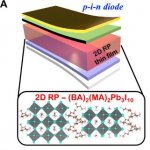
Hsinhan Tsai and a research team in materials, nanotechnology, nuclear engineering and X-ray science at the Los Alamos National Laboratory and the Argonne National Laboratory in the U.S. demonstrated a new thin film X-ray detector prototype.
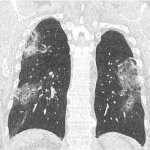
As radiologists worldwide continue to share their knowledge of COVID-19 to help fight the pandemic, two chest experts from France and Spain talked about their country perspectives and the practical experience at their hospital in a dedicated online session organized by the European Society of Radiology (ESR).
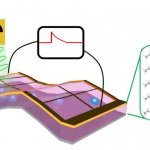
A new X-ray detector prototype is on the brink of revolutionizing medical imaging, with dramatic reduction in radiation exposure and the associated health risks, while also boosting resolution in security scanners and research applications.

Information channel on practical solutions and tools to optimize patient care in radiology. A cooperation of RadBook and Radiologiemagazin.de
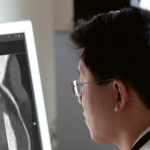
Vitrea software is a multi-modality advanced visualization system providing comprehensive applications in a variety of IT environments – from single site to multi-site standardization. Vitrea Advanced Visualization can help you standardize and consolidate your radiology IT footprint. Advanced imaging tools, such as in-suite 3D viewing and semi-automated measurements, provide physicians with…
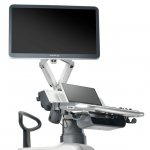
The best patient care is your ultimate goal. To achieve this requires confident diagnosis even with daily increases in patient throughput. Built on the foundation of Mindray’s continuous customer insights into clinical needs and the inheritance from premium technology, the DC-80 with X-Insight is designed to help you manage your daily output with high efficiency, no matter what type patients…

Synapse VNA is the true-VNA application for the content management of images and medical information at the enterprise level; it is an open storage solution, secure, scalable, standard-based and focused on medical data, DICOM and native non-DICOM objects coming from any medical departmental system. Synapse VNA is a patient-centric Vendor Neutral Archive that can be configured to manage the data…
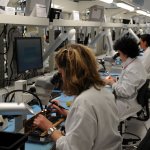
Esaote, an Italian company in the field of medical diagnostic imaging systems, recently delivered 103 portable ultrasound scanners in four Italian regions. An operation that confirms the full operation of the Company even during the COVID-19 emergency and strong support to the national health system. Esaote won the tender launched by Consip (central purchasing body procuring goods and services…
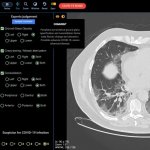
The world’s only online image-based COVID-19 diagnosis improvement tool for healthcare workers is launched by University of Sydney spinoff DetectED-X, drawing on its global experience and outcomes in breast cancer detection and patient cases from the coronavirus pandemic. The cloud-based technology will help doctors and radiologists diagnose cases faster and more accurately. Computed tomography…

A special report by the European Society of Radiology (ESR) addresses the role of radiology in fighting COVID-19. In an expert interview with Prof. Nicola Sverzellati from the University of Parma, Italy, he will share insights on the experience of patient and imaging management in Europe's currently most affected area. Together with ESR Second Vice-President Dr. Adrian Brady from Cork, Ireland,…

Like most technologies, X-ray imaging software is evolving, delivering more automation and improved image quality. However, the fundamental imaging basics for radiologic technologists remain unchanged. In this article, manufacturer Carestream provides a helpful review of the imaging basics for rad techs. In today’s digital world, basic functions once performed by the operator are now…
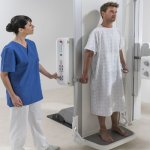
Agfa announces the launch of its digital tomosynthesis solution, which offers a fast, economical and low-dose technique to separate anatomical overlap in a variety of applications. Powered by Musica, digital tomosynthesis automatically delivers 3D reconstructions with optimal contrast and consistent quality across slices and images. The digital tomosynthesis solution can add clinical value in a…
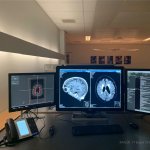
Capturing all the possibilities brought by AI long-seemed a faraway dream for hospitals, since most artificial intelligence (AI) solutions are vendor dependent, thus complicating their deployment in clinical practice. However, the dream has become reality at Utrecht UMC, which launched a pioneering AI infrastructure able to monitor information and run any algorithm from its HIS, RIS and PACS.…
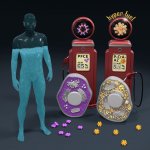
A group of researchers led by Leif Schröder from the Leibniz-Forschungsinstitut für Molekulare Pharmakologie (FMP) have found a way to detect metastases in certain types of cancer in the brain at an early stage, using only minimal amounts of contrast agent. To this end, the team uses a synthetic molecule that helps to detect the formation of new blood vessels, producing much more sophisticated…
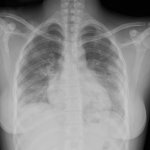
Chest X-ray is the first imaging method to diagnose COVID-19 coronavirus infection in Spain, but in the light of new evidence this may change soon, according to Milagros Martí de Gracia, Vice President of the Spanish Society of Radiology (SERAM) and head of the emergency radiology unit at La Paz Hospital in Madrid, one of the hot spots for viral re-production of COVID-19.

Carestream Health earned the highest position in TractManager’s MD Buyline User Satisfaction Ratings across three categories—portables, X-ray detectors and room-based digital radiography systems—during 2019 survey periods. Carestream’s DRX-Evolution Plus and DRX-Ascend systems scored high marks for performance, reliability, installation and service. The DRX-Plus 3543 detector remains the…

Examining the safety of AI integration into clinical workflow during at the British Institute of Radiology (BIR) annual congress in London, this November, Professor Nicola Strickland focused on issues of data quantity and quality, regulation, validation and testing of algorithms. She also urged radiologists and computer scientists to work more closely together to develop safe, effective and…

Re-using clinical data for research is an academic and organisational challenge, but there is much to gain from this to advance healthcare. During the January Triangle leadership meeting in Madrid, Dr Xavier Pastor, CMIO at Hospital Clínic – Universitat de Barcelona, explained how his institution developed one of Spain’s first programs to promote real world data use in research projects.…

A new strategy to transform imaging in the UK’s National Health Service (NHS) has been unveiled after a major data-gathering project to assess the present state of the service. The process will see the creation of a national strategy for imaging networks designed to deliver improved care and better value services for patients. Key to this has been ‘The Model Hospital’ concept – a digital…

Imaging biomarkers (IB) have advanced tremendously since first described 25 years ago, but many challenges still block their widespread use. During the EuSoMII’s annual meeting in Valencia, Dr Ángel Alberich-Bayarri gave pragmatic solutions to tackle current bottlenecks and explained why close surveillance is mandatory for further development of IB. However, these need close surveillance with…

Novel advanced imaging biomarkers are being developed in a series of studies at several UK centres that may lead to the earlier assessment of treatment response to glioblastoma (GBM) and a better survival rate.